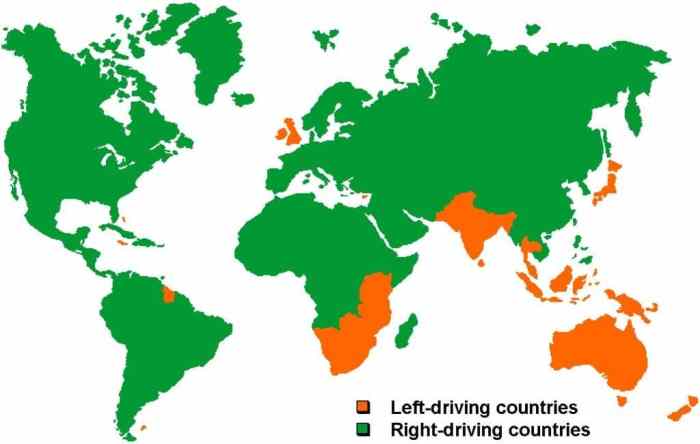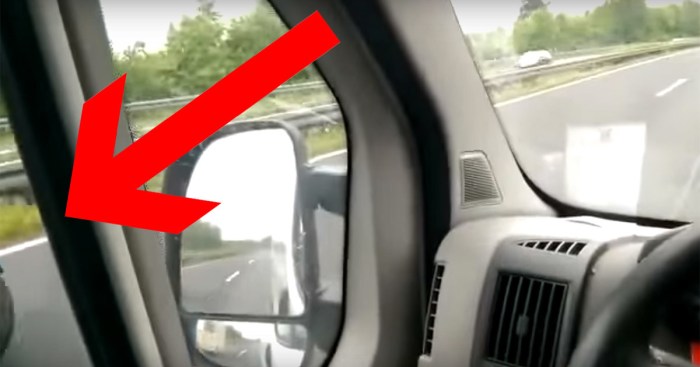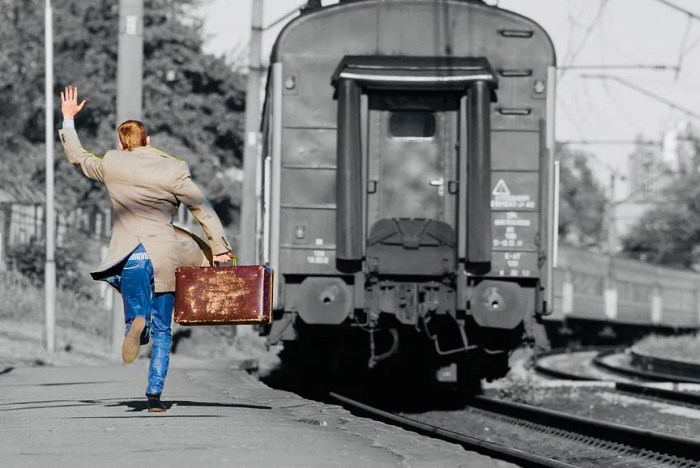Ac acaba de dejar atrás una autovía, a phrase that rolls off the tongue with both familiarity and intrigue, invites us on a linguistic journey through the tapestry of Spanish language and culture. This exploration delves into the multifaceted meanings, contexts, and cultural significance of this ubiquitous expression, uncovering its nuances and the insights it offers into the Spanish-speaking world.
Beyond its literal translation as “just left a highway,” acaba de dejar atrás una autovía resonates with a myriad of interpretations, reflecting the richness and complexity of the Spanish language. Its usage extends across diverse contexts, from everyday conversations to literary works, each adding a unique layer to its significance.
Background of ‘acaba de dejar atrás una autovía’

The phrase ‘acaba de dejar atrás una autovía’ literally translates to ‘has just left behind a highway’ in Spanish. It is commonly used in Spanish-language media to describe a person or group that has recently completed a significant journey or undertaking, often implying a sense of accomplishment or relief.
Examples of usage
- Example 1: “El equipo acaba de dejar atrás una autovía de diez partidos invicto.” (The team has just left behind a ten-game unbeaten streak.)
- Example 2: “La empresa acaba de dejar atrás una autovía de dificultades financieras.” (The company has just left behind a highway of financial difficulties.)
- Example 3: “El estudiante acaba de dejar atrás una autovía de exámenes finales.” (The student has just left behind a highway of final exams.)
Contextual Analysis of ‘acaba de dejar atrás una autovía’

The phrase ‘acaba de dejar atrás una autovía’ translates to ‘just left a highway’ in English. It is a commonly used phrase in Spanish-speaking countries to indicate that someone has recently exited a highway or motorway.
The phrase can be used in a variety of contexts, including:
- Giving directions: “Acaba de dejar atrás una autovía y tome la primera salida a la derecha.”
- Describing a journey: “Acababa de dejar atrás una autovía cuando vi un accidente.”
- Reporting traffic conditions: “Hay mucho tráfico en la autovía. Acabo de dejar atrás una autovía y el tráfico está muy lento.”
The typical audience for the phrase is Spanish speakers who are familiar with driving and road signs. The phrase is typically used in a casual or informal setting.
The tone and register of the phrase is neutral. It is not particularly formal or informal, and it can be used in a variety of situations.
Cultural Significance of ‘acaba de dejar atrás una autovía’

The phrase ‘acaba de dejar atrás una autovía’ (lit. ‘has just left behind a highway’) carries significant cultural implications within Spanish-speaking communities. It evokes a sense of transition and the anticipation of a new experience, often associated with personal growth and discovery.
Personal Transformation
The highway represents the familiar and established path, while leaving it behind symbolizes a departure from the known and a step into the unknown. This metaphorical journey suggests a willingness to embrace change, seek new opportunities, and explore different perspectives.
Exploration and Discovery
The phrase also captures the excitement and anticipation of embarking on a new adventure. The open road ahead represents the possibilities that lie beyond the boundaries of the familiar, inviting individuals to venture into uncharted territories and make discoveries about themselves and the world around them.
Artistic Expression, Acaba de dejar atrás una autovía
‘Acaba de dejar atrás una autovía’ has found its way into various forms of cultural expression, such as literature, music, and film. In literature, it often serves as a metaphor for personal transformation or the beginning of a new chapter in life.
In music, it may evoke a sense of freedom and the exhilaration of embracing the unknown.
Comparative Analysis of ‘acaba de dejar atrás una autovía’

The phrase “acaba de dejar atrás una autovía” (he/she has just left a highway) is a common expression in Spanish that describes the act of exiting a highway or motorway. It is similar to the English phrase “just got off the highway” or “just left the freeway.”However,
there are some subtle nuances and differences in meaning between these phrases. The Spanish phrase “acaba de dejar atrás una autovía” implies that the person has just recently exited the highway, whereas the English phrase “just got off the highway” can be used to describe a more recent or a more distant past event.Another
difference is that the Spanish phrase “acaba de dejar atrás una autovía” is more specific than the English phrase “just got off the highway.” The Spanish phrase specifies that the person has exited a highway, whereas the English phrase could also be used to describe exiting a motorway or any other type of major road.These
variations in meaning are likely due to the different ways that highways and motorways are used in Spain and the United States. In Spain, highways are typically used for long-distance travel, whereas motorways are used for shorter distances. In the United States, on the other hand, highways and motorways are often used interchangeably.As
a result, the Spanish phrase “acaba de dejar atrás una autovía” is more specific and implies a more recent event than the English phrase “just got off the highway.”
Creative Applications of ‘acaba de dejar atrás una autovía’

The phrase “acaba de dejar atrás una autovía” (he has just left a highway) can be used creatively in various contexts, lending itself to diverse interpretations and applications.
Examples Across Genres
| Genre | Example ||—|—|| Poetry | “He left the highway, / Where cars raced by like thoughts / That he could not catch.” || Fiction | “She drove for hours, until she finally left the highway behind, and the world seemed to slow down.”
|| Non-fiction | “As I left the highway, I realized that I had been driving on autopilot for the past few hours.” || Journalism | “The accident occurred just after the driver left the highway, causing a major traffic jam.”
|
Methods for Creative Writing
- Use the phrase as a metaphor for leaving behind the familiar or mundane.
- Create a sense of isolation or loneliness by depicting a character alone on a road after leaving a highway.
- Explore themes of freedom and escape by having a character leave the highway to embark on a new journey.
- Use the phrase to foreshadow a change in direction or perspective.
- Incorporate the phrase into dialogue to convey a sense of urgency or anticipation.
Questions and Answers
What is the literal meaning of acaba de dejar atrás una autovía?
It translates to “just left a highway.”
In what contexts is acaba de dejar atrás una autovía commonly used?
It can be used to describe a physical departure from a highway, a metaphorical transition or change, or a sense of relief or accomplishment.
What is the cultural significance of acaba de dejar atrás una autovía?
It reflects the importance of movement, change, and new beginnings in Spanish-speaking cultures.